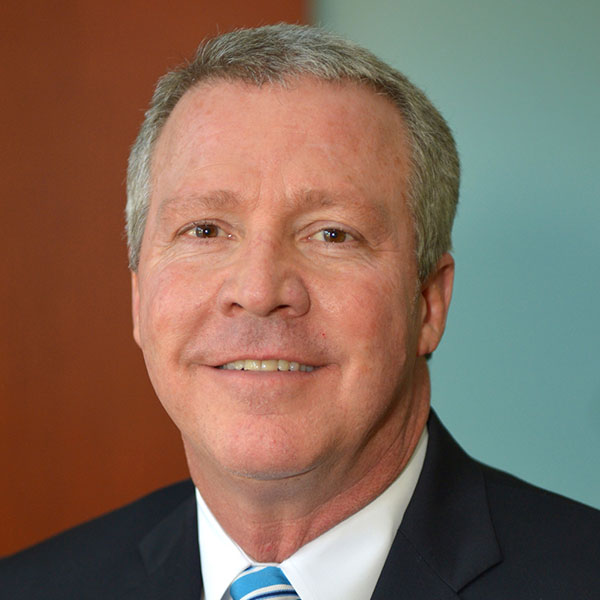

Council for Quality Growth sitting Board Member and former Chairman (2010), Gerald Pouncey, Jr., testified on the morning of September 28, 2022, at a U.S. Senate hearing entitled “Stakeholder Views on the Brownfields Program Reauthorization.” He was called by U.S. Senator Shelley Moore Capito (R-W.Va.) to speak as an authoritative voice on best practices in urban landfill and brownfield development. Pouncey is the Chairman of Morris, Manning & Martin, LLP, an Atlanta-based law firm with a national and international reach. Pouncey is a Senior Partner at the firm, heading the Environmental and Infrastructure Practices. Given his experience and expertise, he was called to testify before the Senate’s Environment & Public Works Committee about brownfield redevelopment being a state-regulated issue, a topic with bipartisan support.
“It was my honor and privilege at its invitation to testify before the Senate Environmental and Public Works Committee September 28th on the importance of incentivizing Brownfield and urban infill redevelopment. This is a critical issue in ensuring investment in areas which traditionally have been avoided by institutional investors. Such investment furthers many bipartisan goals, including development near public transit, reinvigoration of communities, expansion of services to these areas and creation of local job opportunities.” Said Pouncey.
Pouncey is one of the most well-respected brownfield remedial attorneys in the country. He served as a legislative appointee to the Commission formed to review reauthorization of Georgia’s Hazardous Waste Trust Fund. As part of this legislative committee, he was the principal author of Georgia’s new brownfield legislation in 2002. He is also a contributing author to the American Bar Association publication, Brownfields, A Comprehensive Guide to Redeveloping Contaminated Property.
According to the EPA, there are more than 450,000 brownfields in the U.S., and programs built around assessment, clean-up and reuse of these contaminated properties have the potential to dramatically enhance and revitalize communities across the country. Georgia is a state with programs in place to offer incentives for brownfield revitalization projects, including making site cleanup costs tax deductible. “The consequences of failure to clean up brownfields and return them to use are significant, as many abandoned or underutilized properties present real safety concerns,” said Pouncey, “brownfield redevelopment can improve the environment, create jobs, boost local economies, and create opportunities in areas where they might not typically occur. The key is getting the right funding into the right hands so that this important work can continue.”
Pouncey’s testimony pushed for state-level regulation, which can be more advantageous than federal oversight, allowing for better incentives and faster clean up efforts. He urged that a grant programs should have portions dedicated to staffing these state-led brownfield programs and that education is an important factor for the grant recipients to ensure that work on brownfields is done consistently and accurately across properties.
Since Pouncey’s work on Georgia’s brownfield legislation, with the help of private dollars, more than 1,300 sites across the state have gone into the program and more than 700 have achieved final clean-up in record time.
The Council for Quality Growth is proud to have Gerald and his firm as a long standing member of our organization. We appreciate his leadership at the Council, here in the state of Georgia, and throughout the nation.
Visit the links below to read and/or watch Pouncey’s stakeholder testimony:
Watch the Full Recording of the Senate Hearing
(Pouncey’s testimony begins at 51:00)
Read Pouncey’s Testimony on Urban Landfill & Brownfield Development
Featured in the AJC Jolt Newsletter the Morning of Friday, September 30, 2022 – See the Inserted Message Below
***
BROWNFIELD CLEANUP. An Atlanta attorney considered one of Georgia’s leading experts on redeveloping Brownfield sites, testified during a U.S. Senate hearing this week to urge more state involvement in Brownfields initiatives.
Gerald Pouncey, the chairman of the Morris, Manning & Martin, told the Environment and Public Works Committee that huge costs and extensive EPA testing requirements can leave Brownfield sites undeveloped. That then poses major safety concerns for communities near them, especially families with young children.
Pouncey recommended moving sites from Environmental Protection Agency oversight to state programs and said states like Georgia have had success locally.
“In Georgia over 1300 properties have been entered into the Brownfield program since 2004 and over 700 properties have completed cleanup and achieved final closure under Brownfield.”
The Brownfield Redevelopment program, which is overseen by the EPA, is up for reauthorization next year.
***
